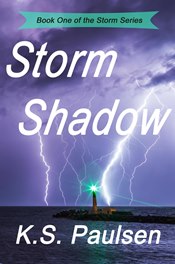Writer’s Tip #1- READ BEFORE WRITING
Hello Adventurers!
As I share essential tips to help you write your first book, short story, or other writing project, I am going to start at the very beginning, with some things you may already know instinctually, or remember from your writing classes in school. I do this because writing is a process, and much like reading a good story, you will get much more out of the experience if you start with the proper foundation, tools, and building blocks, rather than starting to the middle of the book and trying to reverse engineer something wonderful with a box full of tools you don’t understand. I will present these tips in a logical, developmental order, so that each one gives you a step along the path to start your individual project and keep it going until it is complete. I hope you find them helpful and interesting, and I welcome your questions and comments on my blog!
WRITER’S TIP #1—READ BEFORE WRITING
Which comes first, reading or writing? This question is a lot like the chicken vs. the egg scenario; logically you might feel compelled to say that words and stories must be written before they can be read, but the reality for most first-time writers is that you must read, and read widely, before attempting that first manuscript in order to learn what works and what doesn’t. As a reader, you know better than anyone else what you like about a story, the characters, and the messages therein. You know intuitively when a scene doesn’t work because it is too contrived, or when an author is running on incessantly saying nothing or repeating an idea in different ways just to fill pages. As a reader, you have the freedom of interpretation and imagination to fill in constructive blanks and analyze the unspoken motives of the characters. You know when something doesn’t make sense, or when there are too many holes in the story to move the reader along the desired path from point A to point B.
Your first job as a committed writer is to start reading: different genres if you are not sure what would be your most comfortable point-of-entry; different writers (both male and female) with different levels of popularity, and from different time periods within the genres that interest you; stories with different stylistic formats, timelines, lengths, and complexities. If you are already an avid reader, then spend some time thinking about who your favorite authors are and why. What did they do to win your favor as a reader? What do you like most about their work? Is there anything about their work that you dislike? If you have a list of your favorite books of all time, think about why those particular stories worked their way into your heart and created a lasting impression. What level of description did they provide to help you set the scene and characters? In what time period were they set? Did they require a lot of special knowledge and research to write realistically, or were they highly creative and different than anything else you’ve ever read? Is there something they all have in common that might provide a clue as to which direction you should go with your first book?
To be a good writer, you must understand and anticipate your readers’ preferences, biases, and level of expertise with your subject matter. You must know what level of explanation is required for readers to comprehend and picture what is happening in a scene, whether it is a battle between different alien races in another galaxy, a farmer plowing a parched field in the 1920’s with nothing but a horse and determination, or scientists racing against time to save humanity from a deadly virus. When you can objectively analyze the work of another writer and identify the components that made it a success or failure for you as the reader, you can begin to formulate your own style utilizing the components that appeal to you and avoid the pitfalls of the ones that do not.
Your adventure for the week, is to hit up your favorite library or bookstore (or your best book-hording friend), select a variety of reading materials you find interesting, and get busy reading! Make a list of questions from my suggestions above, and try to answer them for each article, short story, or book that you read, and don’t stop, until you have a good idea where you would like to go with your writing.
And hey, feel free to include my book, Storm Shadow, in your homework!
Kris



Comments
Writer’s Tip #1- READ BEFORE WRITING — No Comments